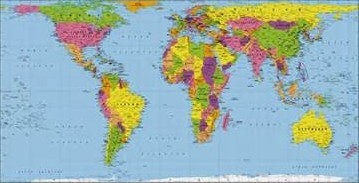Transforming our Racist Culture
Editor’s Note: This article appeared six months prior to the election of President Obama. Despite the election of an African-American President, the need for a broader understanding of racism continues.
QUOFLECTIONS™
ON SPIRITUALITY AND ETHICS
“No one can tame the tongue—
a restless evil,
full of deadly poison.”
James 3:8
Broadcaster Don Imus has been fired. He repeatedly invokes the mantra, “I’m a good person who said a bad thing.” He apologizes for his “stupid and idiotic” racial slur; then he defends himself, stating his comment was said in a “comedy context.”
Do we buy this excuse? We have yet to hear Jay Leno, David Letterman or Jon Stewart attack African-American women as “nappy-headed hos.” When Rev. Al Sharpton asks Imus if he thinks this slur is funny, Imus replies, “no, I don’t.” He chuckled when he initially uttered this aspersion.
Imus’ apology does not deter his defensiveness. He says the phrase “originated in the black community. That didn’t give me a right to use it, but that’s where it originated.” So it doesn’t excuse his behavior, yet Imus seems to suggest that—since some blacks share his sin—he is less culpable.
Also, Imus distinguishes himself from those indulging a racist rant. So, unlike comedian Michael Richards and KKK members, he believes he is not a racist. Imus doesn’t get it. Of course he is a racist. Racist speech does not inexplicably appear at random; it is an expression of racist thought.
Contrary to his claim, Imus is not a good person who said a bad thing. As Jesus concludes in the Sermon on the Mount, “A good tree cannot bear bad fruit.” Our characters are more complex than being good people who occasionally do bad things. Afflicted with evil tendencies, all of us must strive to overcome our selfish impulses.
So we must not condemn Imus as if we are wholly different from him. There is no one without sin, including the sin of racism. As a friend of mine said recently, “I breathe racism in this country.” We all do.
Many believe there are few racists who blatantly claim racial superiority. This imputes innocence to people like you and me who are declared exempt from this sin. This conventional wisdom is blind. We still live in a segregated society. Whites still benefit from institutional racism. We still hear too many talking heads demeaning minorities.
We can choose to see and challenge our own racial prejudices, or we can claim we are good people who only need apply a small bandage for the little hurts we cause. There’s a perverse and wicked pleasure we all get when using put-downs against groups we define as outside our own tribe. If we are wise enough to refrain from spreading these verbal injuries, we must still battle our biased thinking.
Imus is asking the young women of the Rutgers basketball team for forgiveness. As he listens to them, he begins to glimpse their pain. Ultimately Imus, like all of us, needs to claim and confront his racism.
Some wounds are so deep that forgiveness is a painful process. Racism is not merely a scratch; it is a laceration requiring much time and attention to heal, especially since the scabs from old wounds are opened once again. As mediator Rev. DeForest Soaries said, “This was the resurrection of generations of pain.”
Mercy is a demanding discipline. We can only give what we have received. Those who are most gracious know their own need for grace.
We must commend those able to forgive, as Jesus counsels Peter, “seventy times seven.” Still, words can have consequences for those who utter them. MSNBC commentator Pat Buchanan is profoundly mistaken about Imus’ firing: “He asked for forgiveness and they hung him.” Lynching was not a metaphor inflicted on blacks. Buchanan’s bluster demonstrates a despicable racial role reversal.
All of us—not just broadcasters—need to acknowledge the power of our words. Our polluted airwaves need cleansing. Instead of censorship, however, we need the community’s insistence on common decency. Empathy begins with civility. As more individuals and companies reject our society’s slanders and slurs, we can begin to transform our racist culture.
©2007 Harry Rix. All rights reserved.
Related Articles
Appreciating the Prophet of Love
Does Racial Inequality Persist?
Seeking Racial Justice is both Personal and Political
Reasons for Riots
The Legacy of Slavery in Rhode Island
Faith and Love Can Heal Our Divisions

